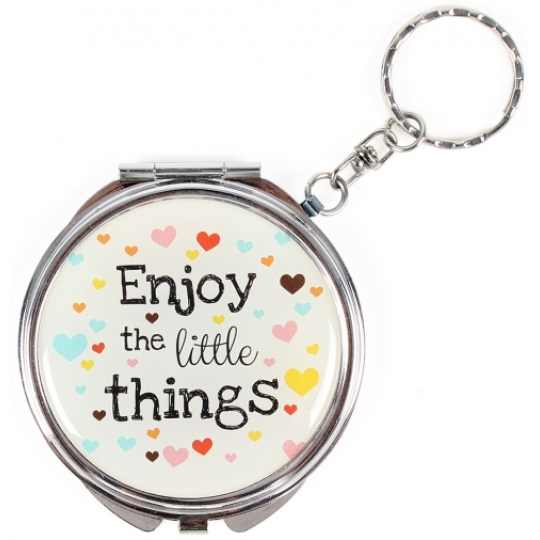Albi Mirror - keychain with the text Enjoy the little things 6.5 cm
Albi Mirror - keychain with the text Enjoy the little things 6.5 cm
Klíčenky, které jsou zároveň zrcátkem, ocení každá žena! Nejenže ozdobí klíče, ale mít Zrcátko stále po ruce, přijde vhod. Zrcátka zdobí veselé motivy doplněné o milé texty. Kapesní zrcátka jsou skvělým dárkem pro kamarádku, kolegyni i sestru.
- Kapesní zrcátka jsou skvělým dárkem pro kamarádku, kolegyni i sestru.
- Průměr zrcátka: 6,5 cm.
Thefirst mirror seems to have been a Water surface where people could observe the image of their surroundings or also their "picture". Sometime in the 6th millennium BC, polished OBSIDIAN plates appear and serve as mirrors. From the 2nd century BC onwards, metal mirrors made of polished bronze begin to be produced. These mirrors were generally used by the ancient Egyptians, Greeks and Romans. The Greeks and Romans sometimes also used polished Silver for a similar purpose.
The use of glass mirrors dates back to the Middle Ages. The first such mirrors appeared inVenice, Italy, around 1300, and they were produced in large quantities there from the 16th century onwards. The original method of manufacture consisted of coating the back of the glass with a compound of mercury and tin. The first attempt to use a Silver solution for this purpose was made by the German chemist Justus von Liebig in 1836.
Various methods of production were gradually developed, depending on the way in which the Silver salts were reduced to metallic Silver.
Today, a solution of Silver nitrate is used, which is poured onto the surface of the glass and left for about 1 hour. During this time, the Silver nitrate is gradually reduced to metallic Silver. This layer is dried, covered with Shellac and painted with the characteristic brown colour. Recently, aluminium has also been used for the production of mirrors, which has the advantage of being more resistant to corrosion (oxidation).
Mirrors are also made for industrial and scientific purposes. These are often made by evaporating Silver, rhodium or aluminium and precipitating them on the front surface of the ground glass in a vacuum. The reflecting layer reaches a thickness of about 0,1 micrometre and must be surface-protected (with silicon).

